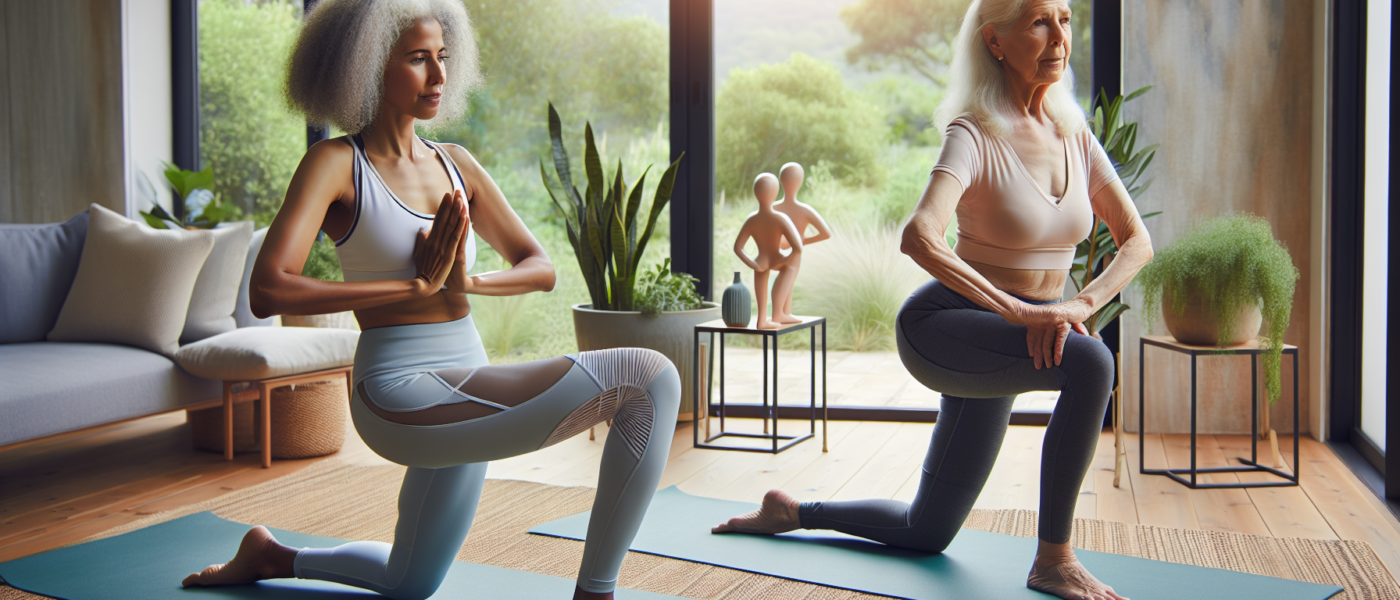Yoga and Exercise: A Promising Approach to Managing Urinary Incontinence in Older Women
Effective Management of Urinary Incontinence in Older Women
Urinary incontinence is a common but often stigmatized issue affecting many older women. A recent study has revealed promising results indicating that low-impact exercises, such as yoga, can significantly help in managing this condition. The study focused on the benefits of specific physical activities over a 12-week period and involved 240 women aged between 45 and 90. The findings highlight the potential of non-pharmacological approaches in improving the quality of life for women experiencing daily urinary incontinence.
A Comprehensive 12-Week Program
The study was meticulously designed to compare the effects of two different exercise regimes: low-impact yoga and general stretching and strengthening exercises. Participants were divided into two groups. One group practiced 16 hatha yoga poses specifically aimed at strengthening the pelvic floor, while the other group engaged in general exercises. Both groups attended two 90-minute sessions each week and were encouraged to practice independently for at least an hour per week.
The results were encouraging. Women in the yoga group experienced approximately 65% fewer incontinence episodes, while the general exercise group saw a reduction of about 50%. These improvements are notable given that they are comparable to the 30% to 70% improvement rates generally observed with medications designed for incontinence treatment.
Accessible and Safe Exercise Options
An important aspect of the yoga program was its design, which aimed to be safe, inexpensive, and adaptable to various physical abilities. This inclusivity ensures that a wide range of participants can benefit from the exercises. Additionally, the program’s accessibility makes it a practical option for many older women seeking effective ways to manage urinary incontinence without the need for medication.
Another significant outcome of the study is the broader health benefits associated with regular physical activity. Beyond the substantial reduction in incontinence episodes, the participants also enjoyed improved general health. Regular exercise helps reduce the risk of falls and bone fractures, which are common concerns for older individuals. Therefore, incorporating physical activity into daily routines not only addresses specific issues like urinary incontinence but also promotes overall wellbeing.
Addressing Stigma and Enhancing Quality of Life
Urinary incontinence can severely impact a woman’s quality of life, leading to social isolation, depression, and an increased risk of falls and fractures. The study underscores the importance of addressing the associated stigma and raising awareness that incontinence is not an inevitable part of aging. By emphasizing that effective treatments are available, the researchers hope to encourage more women to seek help and adopt beneficial lifestyle changes.
In conclusion, the study highlights the substantial benefits of low-impact exercises like yoga in managing urinary incontinence in older women. By providing a safe, accessible, and effective alternative to medication, such exercise programs can significantly improve the quality of life for many. As awareness grows and more women engage in these activities, the stigma surrounding urinary incontinence will hopefully diminish, leading to a healthier, more confident aging population.
